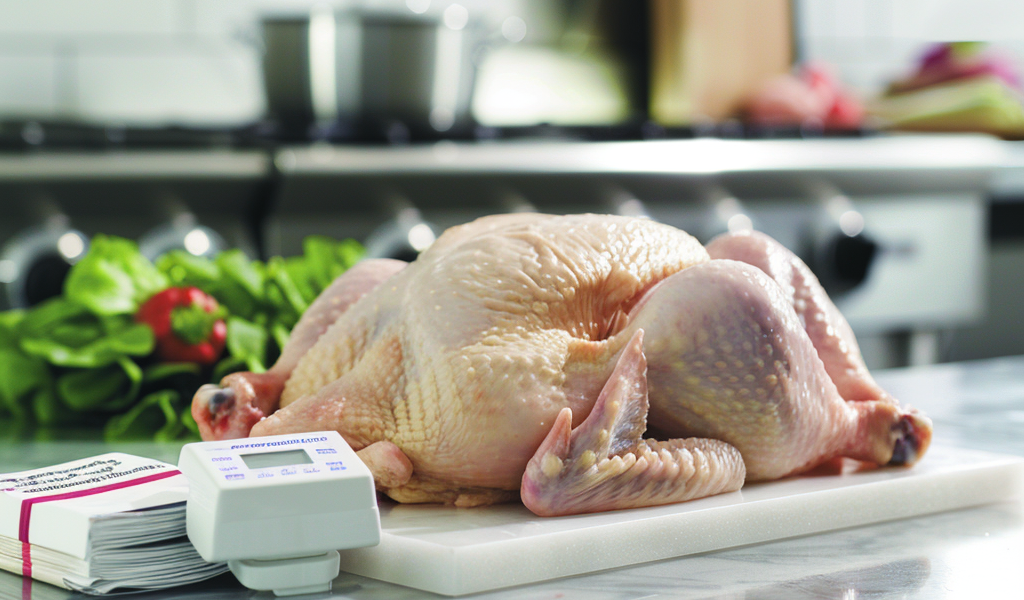The U.S. Department of Agriculture (USDA) is taking significant steps to safeguard public health by proposing a new policy aimed at reducing Salmonella contamination in raw poultry products. This initiative, announced on July 29, 2024, by the USDA’s Food Safety and Inspection Service (FSIS), marks the culmination of a three-year effort to enhance food safety practices associated with poultry.
Salmonella, a bacteria that can cause serious foodborne illnesses, has long been a concern in the poultry industry. With this new proposed rule, the USDA aims to implement more effective measures to control the rates of Salmonella in raw poultry, thereby protecting American consumers from potential health risks linked to contaminated poultry products.
The proposed rule comes after a thorough reevaluation of existing strategies and practices for managing Salmonella in poultry. The FSIS has recognized the need for a comprehensive approach to tackle the issue, which remains a significant contributor to foodborne illness outbreaks across the nation.
In recent years, the USDA has been working diligently to refine its food safety protocols, focusing on prevention and control measures that can be integrated into the poultry production process. The agency’s commitment to enhancing food safety is reflected in its ongoing efforts to collaborate with industry stakeholders, including poultry producers and processors, to establish best practices and standards that can mitigate the risk of contamination.
As part of this new proposal, the FSIS is expected to introduce updated performance standards that poultry establishments must meet to ensure their products are safe for consumers. These standards will likely include stricter testing and monitoring requirements for Salmonella, as well as enhanced training for industry personnel on food safety practices.
The USDA’s proactive stance on food safety is crucial, especially as consumer awareness of foodborne illnesses continues to grow. By addressing Salmonella contamination head-on, the USDA aims to reassure the public that poultry products are being produced and handled in a manner that prioritizes health and safety.
Moreover, the proposed rule is part of a broader initiative to improve the overall safety of the U.S. food supply. The USDA has been actively engaging in research and development to identify innovative solutions that can help reduce the prevalence of pathogens in food products, including poultry.
In addition to regulatory measures, the FSIS is also focusing on educational campaigns to inform consumers about safe handling and cooking practices for poultry. By empowering consumers with knowledge, the USDA hopes to reduce the incidence of foodborne illnesses associated with improper handling or cooking of poultry products.
The USDA’s proposed policy to reduce Salmonella in raw poultry is a significant step in the agency’s ongoing efforts to enhance food safety. As the rule progresses through the regulatory process, stakeholders in the poultry industry will have the opportunity to provide feedback and contribute to the shaping of these important standards.
This initiative not only aims to protect consumers but also seeks to bolster the integrity of the poultry industry as a whole. By fostering a culture of safety and accountability within the industry, the USDA hopes to create an environment where foodborne illnesses are significantly reduced, leading to healthier outcomes for all Americans.
As updates on this proposed rule become available, consumers and industry members alike are encouraged to stay informed about the latest developments in food safety regulations and practices. The USDA remains committed to transparency and will continue to provide information and resources to help ensure the safety of the nation’s food supply.





